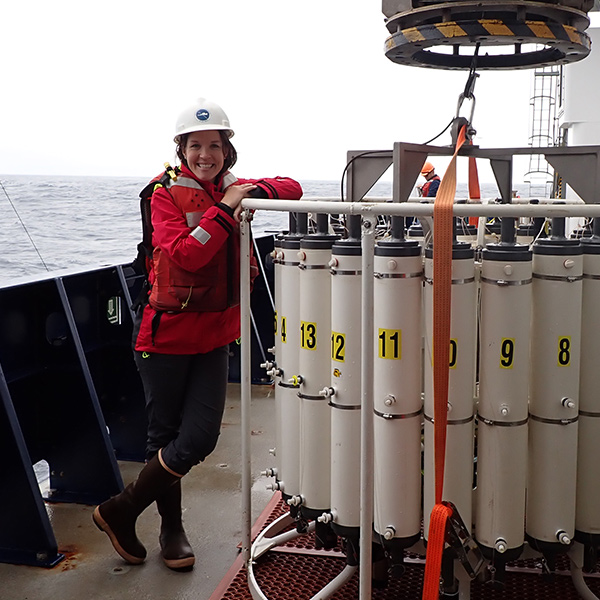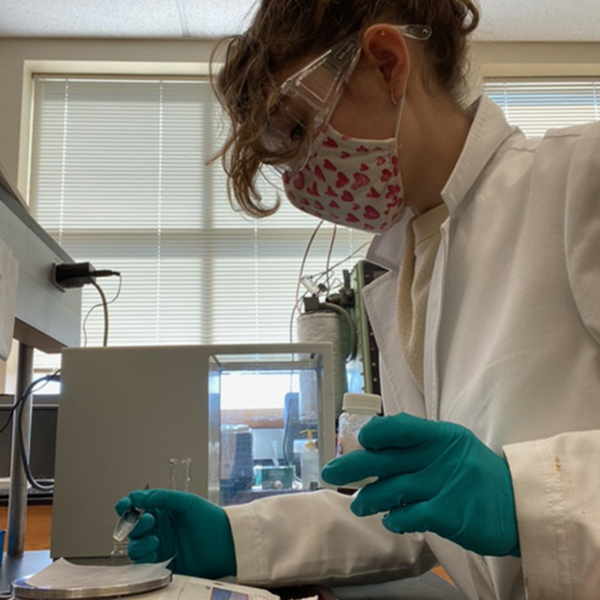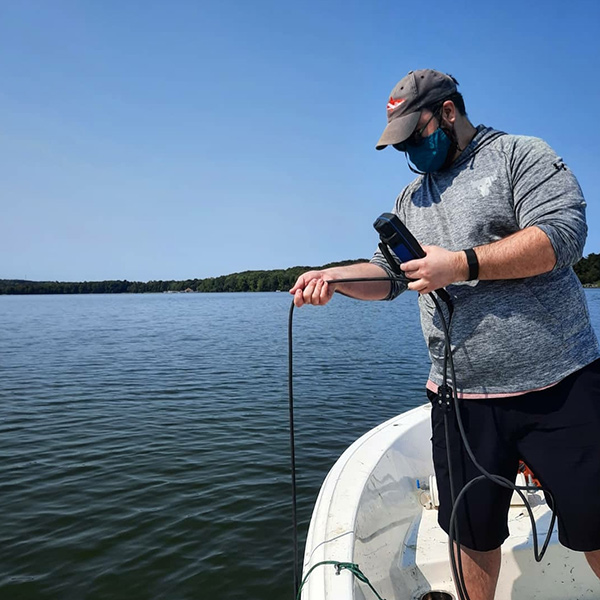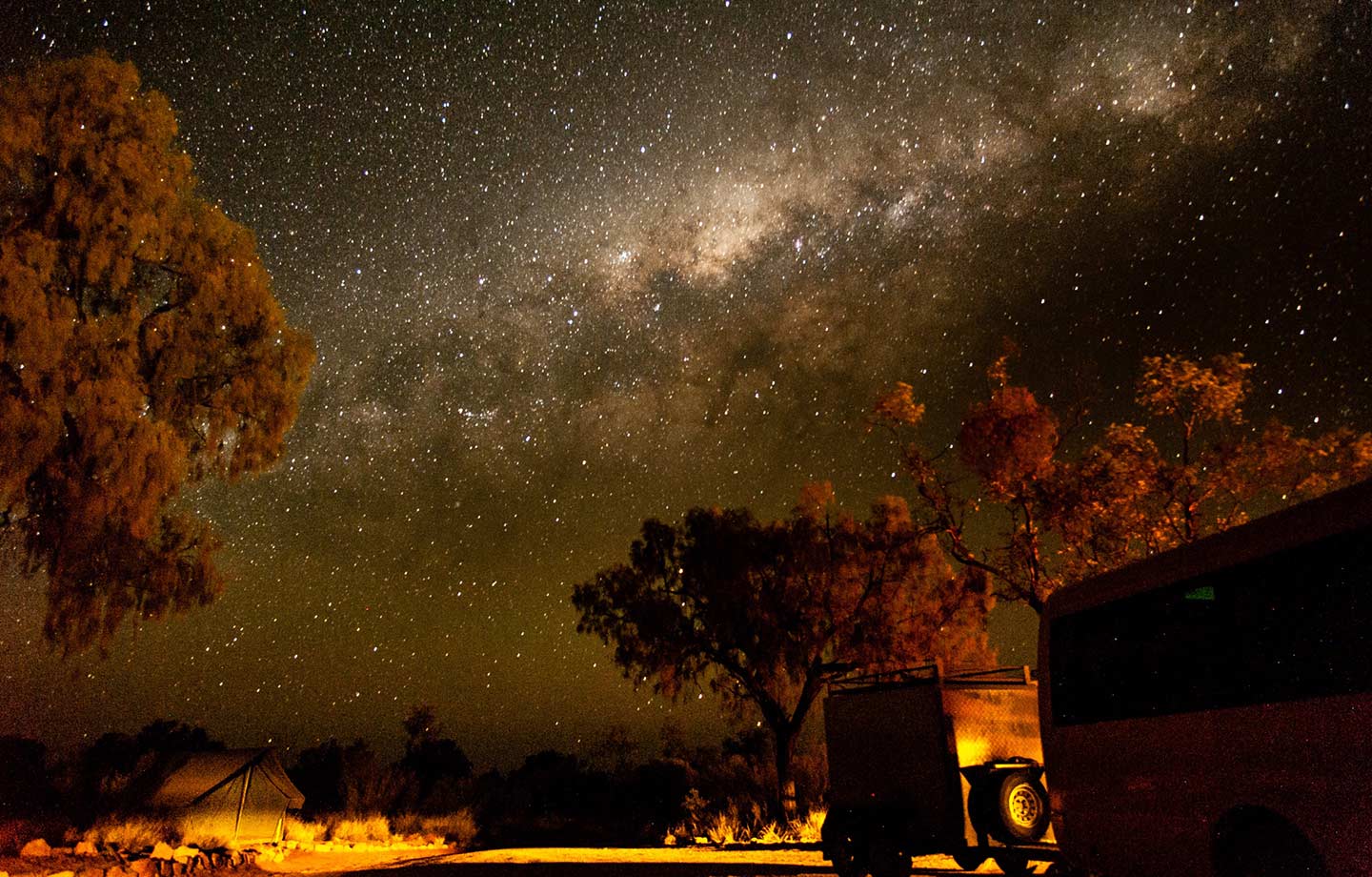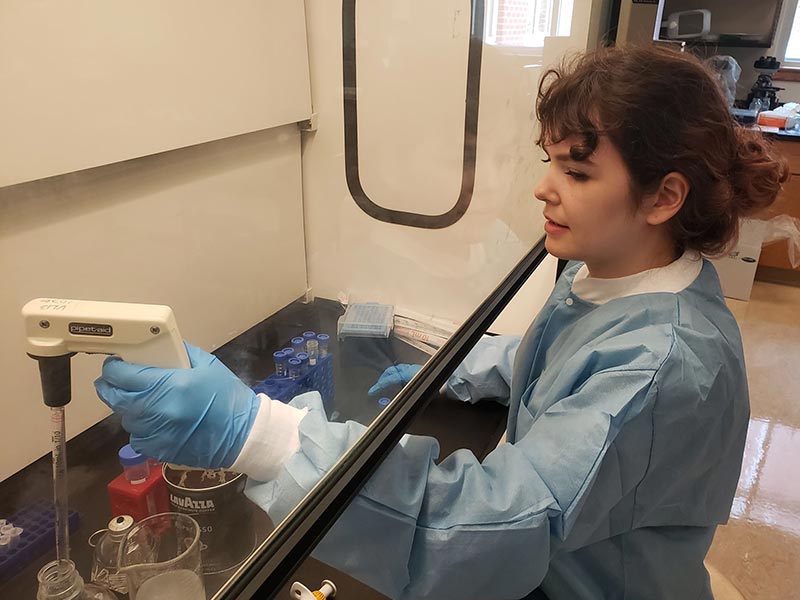
Biology is a diverse area of study that requires a strong foundation in mathematics,
chemistry, and physics. You'll start with introductory courses in four main areas
to gain that foundation: evolution/ecology, organisms, system interactions, and cell
& molecular biology.
You'll be introduced to the lab right away, and then focus on course-based research
experiences, with the opportunity to co-author published papers. You can then specialize
in areas like cell biology, evolutionary biology, wildlife, botany, or many other
fields, as you hone your interests.
You'll be introduced to the lab right away, and then focus on course-based research experiences, with the opportunity to co-author published papers.

Biology is a diverse area of study that requires a strong foundation in mathematics,
chemistry, and physics. You'll start with introductory courses in four main areas
to gain that foundation: evolution/ecology, organisms, system interactions, and cell
& molecular biology.
You'll be introduced to the lab right away, and then focus on course-based research
experiences, with the opportunity to co-author published papers. You can then specialize
in areas like cell biology, evolutionary biology, wildlife, botany, or many other
fields, as you hone your interests.
You'll be introduced to the lab right away, and then focus on course-based research experiences, with the opportunity to co-author published papers.

Biology is a diverse area of study that requires a strong foundation in mathematics,
chemistry, and physics. You'll start with introductory courses in four main areas
to gain that foundation: evolution/ecology, organisms, system interactions, and cell
& molecular biology.
You'll be introduced to the lab right away, and then focus on course-based research
experiences, with the opportunity to co-author published papers. You can then specialize
in areas like cell biology, evolutionary biology, wildlife, botany, or many other
fields, as you hone your interests.
You'll be introduced to the lab right away, and then focus on course-based research experiences, with the opportunity to co-author published papers.
Why Study Biology at Juniata?
People with biological training work on the front lines to characterize and solve problems. What molecular genetics and biology do you need to know to disrupt the way a virus is working? What do we do when climate changes cause increased temperatures and ocean levels and disrupt whole ecosystems? Juniata has graduates out there right now answering these questions.
Why Study Biology at Juniata?
People with biological training work on the front lines to characterize and solve problems. What molecular genetics and biology do you need to know to disrupt the way a virus is working? What do we do when climate changes cause increased temperatures and ocean levels and disrupt whole ecosystems? Juniata has graduates out there right now answering these questions.
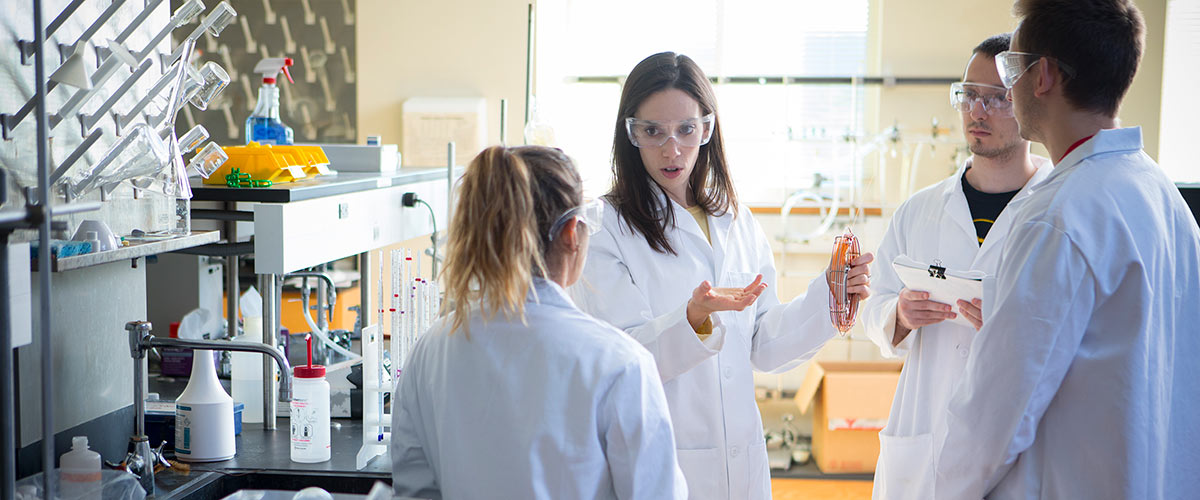
von Liebig Center for Science

von Liebig Center for Science

von Liebig Center for Science

von Liebig Center for Science
Brumbaugh Academic Center
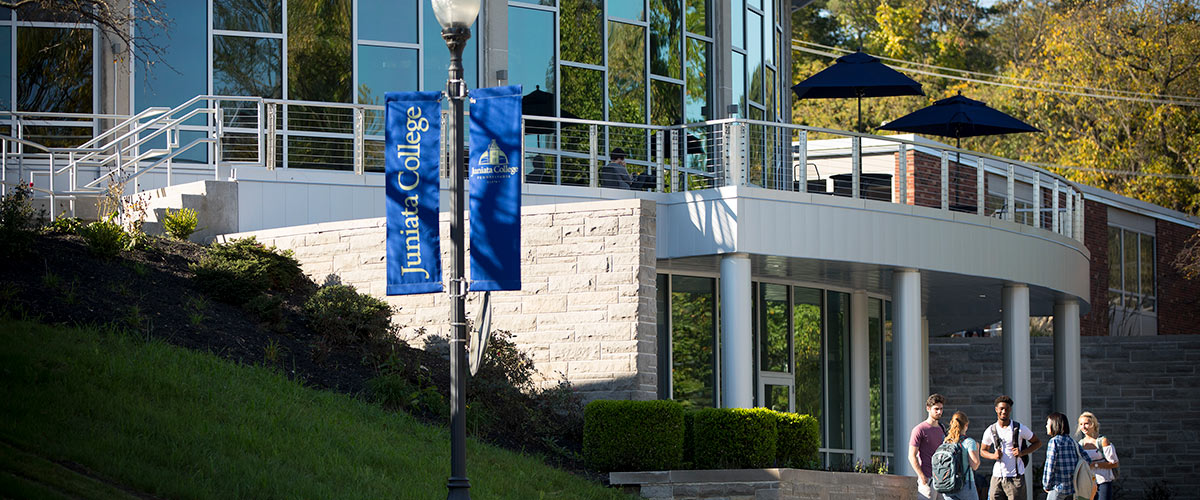
Brumbaugh Academic Center

Brumbaugh Academic Center

Brumbaugh Academic Center

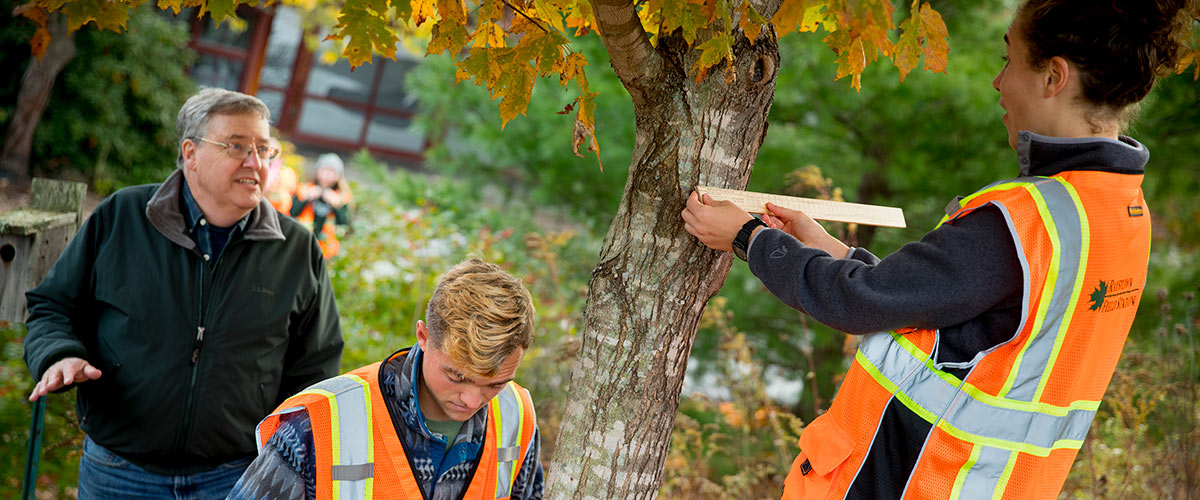
Raystown Field Station

Raystown Field Station

Raystown Field Station

Raystown Field Station
Study Abroad
Studying abroad provides a valuable perspective of global Biology and field opportunities that may not be available at Juniata. Destinations include: the United Kingdom, France, Germany, Australia, Northern Ireland, Ecuador, and the Galapagos Islands.
Learn More →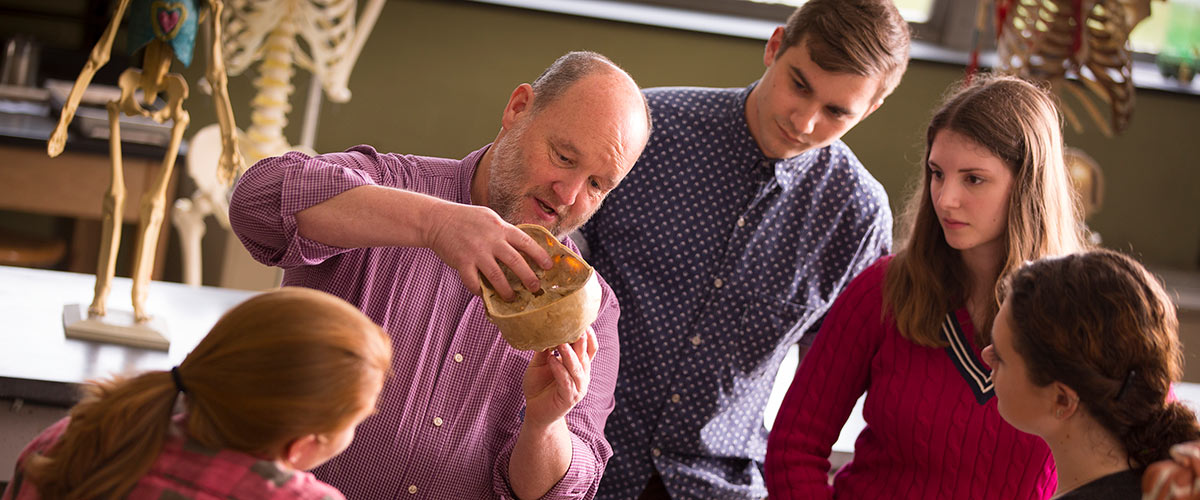 skip to content
skip to content







